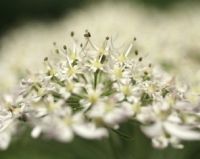

Tesco has set up a trial to help Britain's shrinking honey bee population through the use of waste sugar from split bags and leftovers from bakeries and use it as a feed for bees struggling to get enough nectar to feed themselves.
Discarded sugar from split bags is rated as no longer fit for human consumption, along with surpluses from in-store bakeries. Tesco stores in Cornwall and Devon have decided to use this resource and ship it to local beekepers group, who will turn the sugar into a thick syrup in autumn and winter months to act as an human-made nectar to feed bees, helping them survive winter months and improve breeding rates.
The ideal sugar is the basic white granulated, it cannot contain any artificial sweeteners as they might be harmful to bees. Brown sugar is not suitable either as it gives the insects dysentery.
In recent years the UK's overall population of honey bee has dwindled by a third due to pests, diseases, pollution and fewer wild flowers, all of which makes it much harder for bees to produce enough honey to feed themselves throughout the winter.
Tesco's community manager, Lucy Hughes said: "Bees are not only central to the process of pollinating crops which later become our food but are an iconic part of the great British countryside. I hope this project will go some way to support our local bees and help them through the winter months."
David Ledger, a commercial beekeeper who keeps more than 100 colonies of honeybees said: "It makes sense to use waste sugar that would otherwise be burnt or thrown away and I hope this trial could be extended nationally to support bee conservation work throughout the UK."